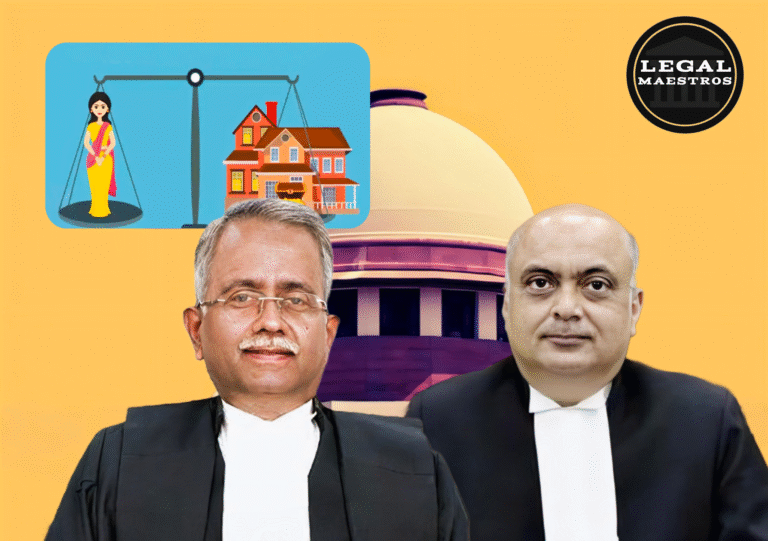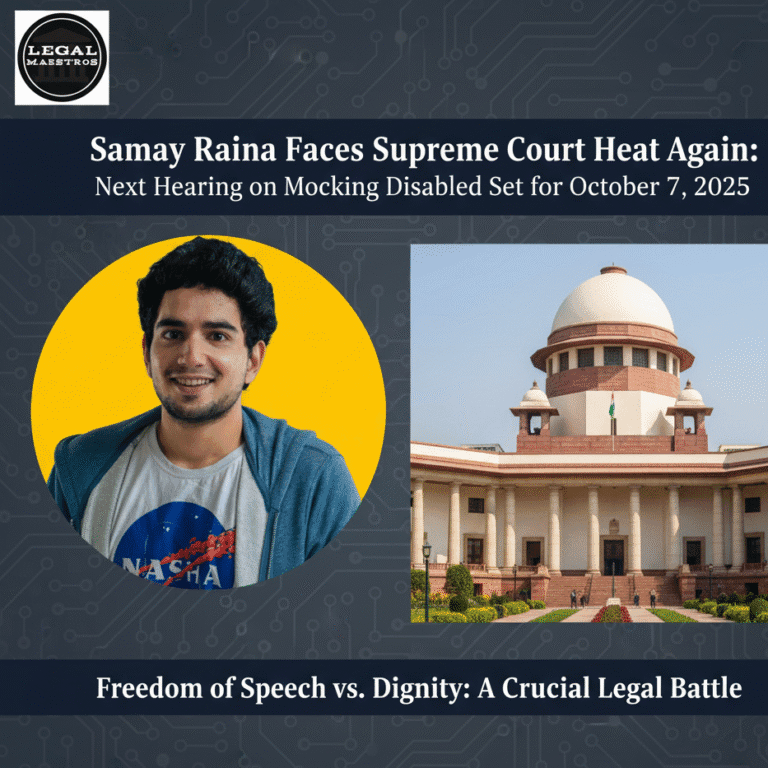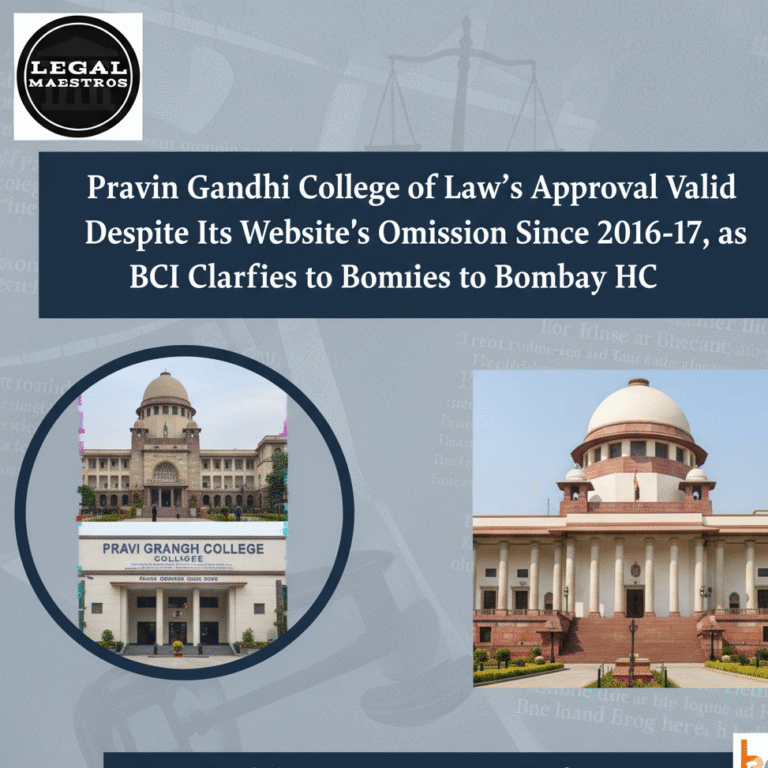
In the case of G.V. Adhimoolam and Others vs. The Inspector of Police and Another, which was resolved on April 4, 2025, the Supreme Court of India addressed the key question of whether or not a long-standing civil dispute that is disguised as a criminal complaint can be pursued under criminal law. Specifically, the verdict, which was handed down by Justices Vikram Nath and Sandeep Mehta, highlights the growing concern around the exploitation of criminal justice procedures to settle personal and financial scores.
The Court has reaffirmed that criminal courts are not intended to serve as instruments of coercion or private vendettas, particularly in the context of business issues that need to be resolved through civil action. This was accomplished by throwing aside the First Information Report (FIR) and following criminal proceedings.
Details on the situation
According to the allegations made by the complainant, M. Senthil Kumar, he was deceitfully persuaded to put his money into a Nissan vehicle dealership that was owned and operated by his relatives. These relatives included G.V. Adhimoolam, his niece Sharmila Devi, her husband Vijayaraj, and other individuals. The disagreement began within the context of the family, when the complainant’s older brother, R.M. Rajamanikam, who has since passed away, introduced the idea of making an investment.
Taking this suggestion into consideration, the complainant made a transfer of ₹1.5 crore in the year 2013, which was made to a company known as Sri Vakkira Kalliamman Spinning Mills Pvt. Ltd., which was run by his brother. After that, he allegedly paid an additional twenty lakh rupees in cash in order to be accepted into the automobile dealership. But despite the fact that he contributed financially, he was never given the opportunity to become a partner in the company.
Under the provisions of Sections 420, 342, 294(b), and 506(1) of the Indian Penal Code, the complainant filed a First Information Report (FIR) in 2019, which was six years after the monetary transactions. The complainant accused the appellants of cheating, criminal intimidation, and other offenses.
For More Updates & Regular Notes Join Our Whats App Group (https://chat.whatsapp.com/DkucckgAEJbCtXwXr2yIt0) and Telegram Group ( https://t.me/legalmaestroeducators )
Provisions of the Law That Are Not Clear
The following legal provisions were the primary focus of the case during its entirety:
In the Indian Penal Code, Section 420 addresses the offenses of deceiving and dishonestly inducing delivery of property.
Section 342 of the Indian Penal Code addresses the issue of unjust detention.
Obscene acts and songs are punishable under the Indian Penal Code, Section 294(b).
This section of the Indian Penal Code (IPC) addresses criminal intimidation.
Section 482 of the Criminal Procedure Code provides High Courts with the inherent authority to halt proceedings in order to avoid abuse of the legal process.
According to Article 226 of the Constitution, High Courts have the authority to issue writs or instructions in the event that there is a violation of the law.
The primary question that needed to be answered was whether or not these criminal prohibitions were applicable in a case that was basically based on a broken business understanding between members of the same family.
Key Concerns That Have Been Addressed by the Court
During the course of the appeal, the Supreme Court found several fundamental concerns. At the outset of the transaction, the most important question was whether or not the accused had taken advantage of the complainant by deceiving them into parting with money, with the intention of committing a criminal crime. Secondly, the court was tasked with determining whether the criminal complaint had been submitted in good faith or whether it was a tactic of exerting pressure following the failure to commence civil proceedings in a timely manner before the court.
In addition, the Court deliberated on whether or not the verbal abuse and claimed intimidation that occurred during a family dispute constituted criminal offenses that might be prosecuted under sections 294(b), 342, and 506(1) of the Indian Penal Code.
An examination of the FIR and the delay
The FIR that was submitted in 2019 for transactions that took place in 2013 was scrutinized by the court in great detail. According to the report, the complainant had not provided any justification for the delay that lasted for six years. There was a gap that could not be explained, which created major concerns about the authenticity of the allegation.
In addition, the court made the observation that the complainant, rather than filing a civil litigation to recover the purported investment, waited until after receiving a summons in a counter-complaint that was filed by the accused. It was believed that the FIR was filed as a form of retaliation rather than as a pursuit of justice due to the delay, which was combined with the time of the filing.
The findings regarding Section 420 of the Indian Penal Code
It is necessary to demonstrate that the accused had a dishonest purpose to deceive from the very beginning of the transaction in order to be found guilty of an offense under Section 420 of the Indian Penal Code. This evidence was not discovered by the court. The court decided that the initial investment was made on the recommendation of the complainant’s own brother, and that it was transferred to the company that the complainant’s brother owned rather than being transferred directly to the accused.
In addition, there was no evidence or written agreement that suggested the accused had ever made a commitment to the complainant that they would include them as a partner in their business. Among the most significant shortcomings was the fact that the accused did not provide any formal partnership deed or acknowledgement.
The court came to the conclusion that the complainant’s allegations of inducement were devoid of any tangible evidence, and that the FIR did not disclose any of the basic elements that are required to be considered cheating in accordance with the law.
An Analysis of the Other Sections of the IPC
The allegations that were linked to Sections 294(b), 342, and 506(1) of the Indian Penal Code were also dismissed by the Supreme Court. The complainant’s account of the incident, in which he was reportedly subjected to verbal and physical abuse as well as intimidation, took place in the residence of the accused. At this point, it became clear that the individual who filed the complaint was the one who had invaded their premises and started the conflict.
The court decided that the charges did not constitute a criminal offense, even if it were assumed that there was some exchange of heated words between the parties involved. Such instances, particularly when they occurred within a home setting and included individuals who were closely linked to one another, did not warrant the involvement of the police unless they were substantiated by actual proof of threats or bodily violence.
Criminal versus civil remedies, as well as abuse of the legal process
A significant issue that was brought to the attention of the Court was the inappropriate employment of criminal law in order to recover money in a dispute that was primarily of a civil nature. By postponing the filing of a civil case and instead utilizing criminal law, the complainant attempted to circumvent the constraints imposed by the law and exert pressure on the accused.
Based on the well-established notion that criminal courts cannot be used as “recovery agents” and that personal vendettas should not be the driving force behind criminal actions, the Court cited this principle.
The integrity of criminal law is not only undermined by this approach, but it also causes the judicial system to become clogged with private conflicts that ought to be settled through civil channels.
The Final Thoughts and the Decision of the Supreme Court
The Federal Investigation Report (FIR) and all criminal procedures against G.V. Adhimoolam and other accused individuals were deemed to be examples of an abuse of the legal process by the Supreme Court. The court dismissed the First Information Report (FIR) No. 21 of 2019, and it overturned the order of the High Court that had previously declined to do so.
A crucial precedent has been established by the verdict, which reaffirms that criminal prosecution must not be allowed unless a clear criminal offence has been disclosed. A simple disappointment over failed commercial expectations or financial loss does not constitute criminal behavior, especially if there was no intention to lie from the beginning of the situation.
In situations where family or business issues are being attempted to be transformed into criminal charges in order to acquire leverage, this verdict will be very significant.
For any queries or to publish an article or post on our platform, please email us at contact@legalmaestros.com.







